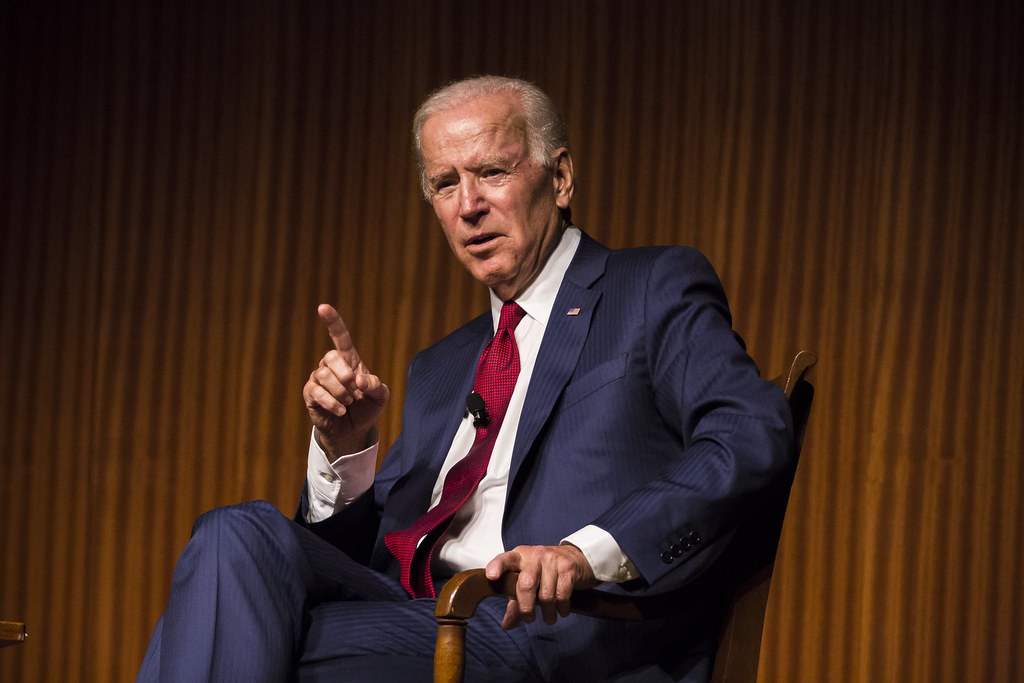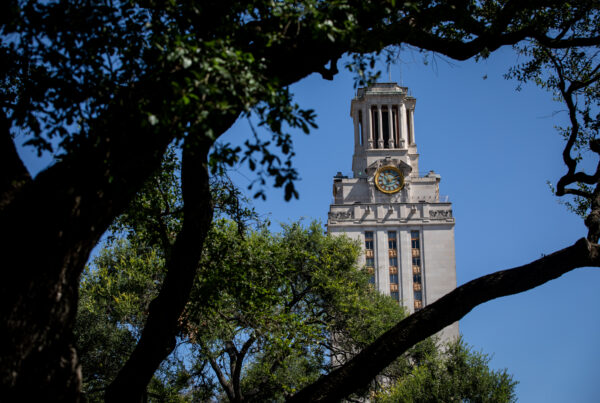Next week, the Supreme Court will begin hearing oral arguments on the Biden administration’s student loan forgiveness plan. That proposal could erase up to $20,000 of debt for many borrowers with federal loans – if the court rules that the program is legal.
Over 43 million Americans hold federal student loan debt. Though federal loans typically have a repayment term of 10 years, some borrowers have been in repayment for decades. Washington Post reporter Danielle Douglas-Gabriel spoke with some borrowers who say they feel like they’ll never get out from under their student loans, despite years of payments. She joined the Texas Standard to talk about flaws in the system, and how some people get stuck in decades-long debt and repayment cycles.
This transcript has been edited lightly for clarity:
Texas Standard: You spoke with several people who’ve been repaying student debt for decades, including one man, C.W. Hamilton, who’s been in repayment for more than four decades. How did he get to that point?
Danielle Douglas-Gabriel: Certainly I think it’s important to note that C.W. is not exactly a poster child for a student loan repayment system, but he is an example of how it can fail people. This is someone who used his GI Bill to try to pay for college. It wasn’t enough; had to end up borrowing to try to complete his degree and initially thought that he was going to make enough money to pay that back quickly. That didn’t quite materialize. And life kind of got in the way in the sense that feeding his five kids, paying for housing, taking care of his family became a priority in a way that his student loans didn’t.
You know, I want to be clear that he is someone who takes responsibility for not being able to pay back his loans in a timely fashion and perhaps making decisions that made the situation worse. But all along his repayment journey for the last four decades, there should have been people, particularly student loan servicers, the Department of Education, to intervene, to say, ‘Hey, if you can’t afford this plan, here are all the other options.’ But that didn’t happen.
Is it clear how many federal student debt holders have been in long-term repayment for 20-plus years, perhaps?
So I did a Freedom of Information Act, and I found out that actually there are 47,000 people who have been in repayment for at least 40 years. There are 4.4 million people who have been in repayment for more than 20 years. And what I think is the most stunning bit of both of those data points is that most of those people are in default on their loans, meaning they haven’t made a voluntary payment in at least 270 days. Some of these people keep defaulting on their loans.
And again, it’s not to say that there isn’t personal responsibility here. But the system through Congress, through multiple administration, has been created in a way to create off-ramps for people who are having a hard time repaying their loans, making their payments more affordable, making the management of this debt more sustainable for them.
Well, if that’s the case, why does the debt just keep on going? Isn’t the purpose of having these off-ramps, as you describe them, to help them manage that debt better so that they can get that debt off their shoulders?
So certainly the early years of many of these programs that were supposed to help folks, they got off to a rough start. There wasn’t a lot of advertising of the programs; there were years of administrative failures – and poor design, honestly – that denied a lot of borrowers this help.
But fast-forward to now: I think the Biden administration is trying to play cleanup of a lot of those programs through a series of different initiatives to help borrowers. But it’s not exactly a seamless effort right there. There are a lot of people, including the three people I featured, who may not get help from these plans because they were in default for so long. So this is something that a lot of advocates are trying to address with the administration and hoping that they will reconsider some of the way their policy is currently being played out.
Do I understand you correctly to say that even if the Biden administration’s approach here with the debt forgiveness is upheld, that really won’t help a lot of folks?
So not that piece. So it’s interesting, the Biden administration’s approach to trying to help people is multi-pronged, right? The debt relief program that is going before the Supreme Court, that’s only one step. There are also initiatives that are coming straight from the Education Department that have not been challenged in any lawsuit, at least not yet, including a program called Fresh Start that’s supposed to lift people out of default. And another program called Income-Driven Repayment Adjustment, this gives you credit for years in repayment that may not have counted otherwise.
However, it does not give credit to people who are in default on their loans for an extended period – people like C.W. Hamilton, people like, I think, Patricia Vener, who was also featured in my story. Many of them were in long-term default and may not benefit. So that’s the piece that I think a lot of people would like to see addressed, because what is the point, a lot of advocates say, of going after someone who’s 72 for a $5,000 debt?













